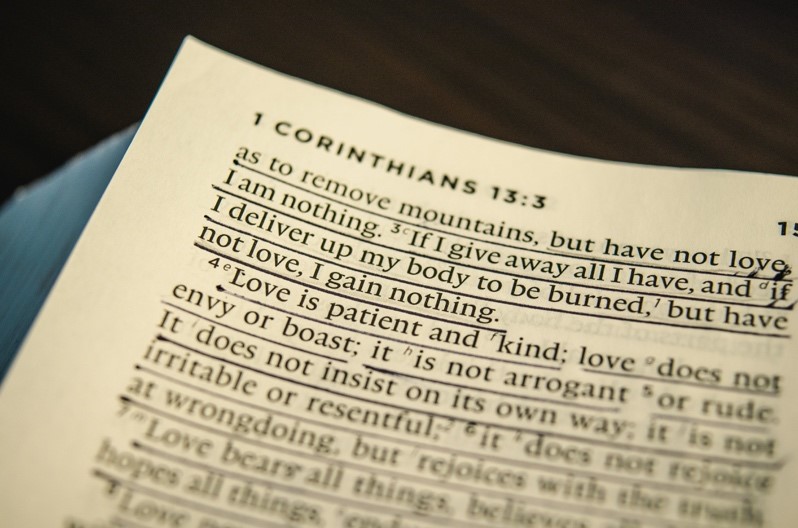Did you know that the Bible is, ironically, the most commonly stolen book in the world? Did you know that it has been translated into well over 2000 languages across the globe, that over 100 million copies are printed each year, or that the Guinness World Records estimate it to have sold approximately 5 billion copies, and since 1995, has held it as the number one best-selling and most widely distributed book of all time? To put those last couple into perspective, J. R. Tolkien’s ‘The Lord of the Rings’ books are estimated to have individually sold around 150 million copies since they were published in the 1950’s, and they sit at the top of their respective best-selling book list. These are some amazing facts that tell us a lot of fun information about the Bible, but they don’t tell us what it is.
’What is the Bible?’ is a question I have learnt to answer over time. I’ve heard some interesting theories and cute notions as to what people think it might be: one of many religious texts invented to give people a sense of hope, an ancient man-made document to push a specific agenda, or more simply, a fictional story written by some guy with a beard (I have actually heard that one a lot). But growing up I was always very confident as to what I believed the Bible to be, and it wasn’t any of the above. It is perhaps viewed as a typical Christian response, but I would have said something along the lines of ‘it’s the Word of God’. Although I absolutely believe this to be true, I would completely agree with anyone who thinks that this response initially raises more questions than it answers. And so, as I attempt to briefly outline a single aspect of such a broad and complex topic, I pray the Lord will give you clarity on what exactly the Bible is and why you should check it out.
An extremely useful starting block is understanding that the Bible is a historical document. It accurately recalls the true story of how God used the Jewish people in order to send a message of love and hope to the whole of mankind. It is made up of various poems, books and letters, written by many different authors who lived across a time span of more than 1500 years (which immediately hits the ‘story by a man with a beard’ idea on the head). For me, this changed everything. It changed the way I read it, thought about it and ultimately how I tried to apply it to my life. It took me from a place of simply believing that it was in some way true, to understanding that it is true in a very real way. A historical way. How many times have you heard someone refer to the Bible as historically accurate?
So, where does a phrase like ‘the Word of God’, which sounds like some supernatural, Christian jargon, fit into the category of history? Well, the Bible uses the phrase ‘Word of God’ to explain different things. Sometimes it is referring to the audible voice of God, and other times ‘word’ is referring to ‘something God is trying to say’. For example:
“After this, the word of the LORD came to Abram in a vision: “Do not be afraid, Abram. I am your shield, your very great reward.” (Genesis 15:1)
Abram (more commonly known as Abraham) knew what God was trying to say to him through the vision he received. With that in mind, I would like to abruptly round-off this blog with something to provoke thought (as if you didn’t have enough already!). I believe that the Bible is the Word of God for many reasons, but one of those reasons is that it is God’s message to us of how much He loves us. In the same way Abram knew what God was saying to him through the vision he received, so too can we know what God is saying to us through reading and meditating on the message He has given to us. The Bible. The Word of God! The Bible tells the complete story of how God looked after the Jewish people until the moment was right for Him to come to this Earth as the person of Jesus Christ. What’s more is that when He did that, He payed the price for our rebellion against Him and openly invited everyone (not just the Jews) to respond. Now all that we have to do is believe in Him, ask for forgiveness and live a life that pleases Him. How? It’s all in the Bible.
That’s just one way of explaining what the Bible is using the phrase ‘Word of God’, and I want to stress that the Word of God is far greater and more sophisticated than I could ever explain, let alone in a short blog! I will probably elaborate on this a bit more next time, but for now, just remember that although I’ve mentioned a supernatural aspect of the Bible, the historical aspect is still standing strong alongside.
Ryan











